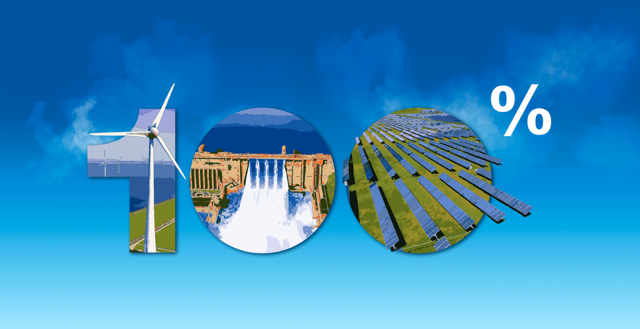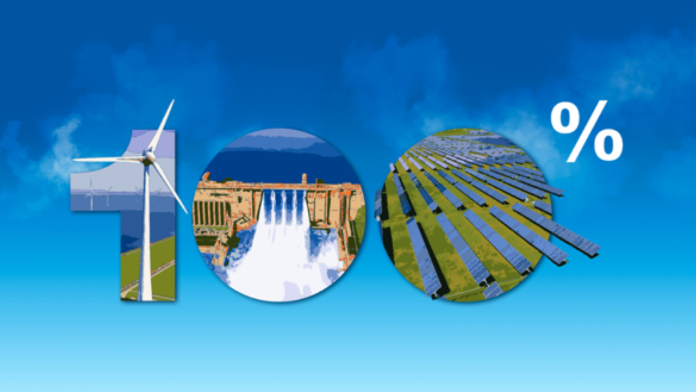Manufacturing requires an enormous amount of electricity in comparison to powering offices. In some countries or regions where the supply of renewable electricity is limited, like Japan, Taiwan, and Singapore, it is much more expensive than electricity produced by traditional means, placing a significant future cost burden on companies that purchase renewable electricity.

In the recent The Road to Renewables report by Reuters, Epson, a global technology leader, has shared that it is the first among Japan’s domestic manufacturing industry to overcome major cost challenges in fully switching to renewable electricity. This achievement sets a benchmark for Japan’s manufacturing sector, inspiring industry-wide transformation toward renewable energy across the region.
Despite the significant costs associated with transitioning to 100% renewable energy, Epson remained resolute in its commitment to sustainability. This determination was bolstered by strategic partnerships with suppliers, electricity generators, local governments, and fellow manufacturers, all of which were instrumental in facilitating the transition.
Pioneering Full Renewable Transition and Tailoring Local Strategies
Despite challenges posed by the significant capital investment needed, Epson began procuring renewable electricity in 2016. By November 2021, the company successfully cut 250,000 tonsof CO2 emissions – meaning Epson achieved a complete transition to renewable electricity across its operations in just six years. Epson’s shift to renewable energy is expected to reduce its carbon dioxide emissions by approximately 400,000 tons each year.
Epson’s transition to 100% renewable energy sets a benchmark for Japan’s manufacturing sector, driving industry-wide transformation across the region.
Adapting to locally produced energy and infrastructure conditions, Epson is able to address the challenges of renewable availability and infrastructure gaps by customizing its approach to fit the specific energy resources of each country and region.
In the Philippines, the company relies on local geothermal and hydroelectric sources as its renewable source of energy. Epson’s subsidiary in Indonesia drives its renewable energy transition by capitalizing on the local palm industry, using palm kernel shells (PKS) as a sustainable biomass energy source derived from the region’s abundant palm trees. In Japan’s Tohoku region, Epson taps on local hydropower from Tohoku Electric Power Co. to supply its semiconductor fabrication plant in Sakata. This long-term contract allows Epson to secure a consistent electricity supply at a stable price over an extended period.
Partnerships that Power Energy Transition
Epson’s commitment to its management philosophy is based on the principles of ‘sho–sho-sei’—efficiency, compactness, and precision—driving its commitment to advancing renewable energy. This dedication extends beyond increasing its own power generation to actively supporting the development of new energy sources through collaborative initiatives.
Along with renewable electricity, Epson co-creates and develops other power sources through ongoing renewable electricity purchases. In partnership with Nagano Prefecture and Chubu Electric Power Miraiz Company, Inc., Epson has initiated support for hydroelectric power plants in Nagano Prefecture. Two plants are already in operation, generating a total of 5,770 kilowatts. A third plant is scheduled to begin operation in 2024, with plans to increase the total to five plants by 2025.
This shift has motivated other companies in the Nagano region to embrace renewable energy, accelerating broader growth in the manufacturing industry. Epson has also announced the construction of its first Biomass Power Plant in Nagano, which will utilize unused wood from the Minami Shinshu area, further solidifying its commitment to sustainable energy solutions.
Environmental Vision 2050: Epson’s Carbon Negative Vision
Epson has set an ambitious goal to become carbon negative and eliminate the use of underground resources by 2050. To achieve this, the company plans to invest 100 billion yen ($700 million USD) over the next decade to drive these efforts, which will focus on decarbonization and resource recycling initiatives, developing innovative environmental technologies, and offering products and services that mitigate environmental impacts. This investment also aims to reduce greenhouse gas emissions in the supply chain by over 2 million tons.
Epson will focus its management resources on developing solutions that help customers minimize their environmental footprint. With commercial and industrial sectors responsible for half of global end-use electricity, it is essential for businesses to drive the transition to renewable energy.
For a deeper dive into Epson’s journey of transitioning to 100% renewable energy, explore the full The Road to Renewablesreport by Reuters here.


















